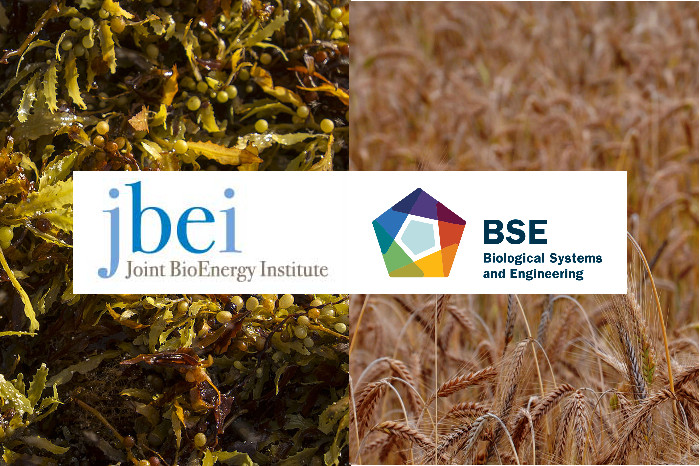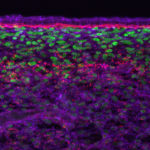The American Institute of Chemical Engineers (AIChE) has recognized two Biological Systems and Engineering (BSE) early-career researchers–Akash Narani and Ning Sun–with honors to be bestowed at the 2017 AIChE Annual Meeting in Minneapolis, Minn., this fall.
Two Advanced Energy Proposals Go Forward
The Energy Biosciences Institute (EBI) has announced that they will be supporting two proposals submitted by Jay Keasling, Chief Science and Technology Officer for Biosciences, and Steven Singer, Staff Scientist in the Biological Systems and Engineering Division. In partnership with EBI, Shell will fund the 6-month pilot projects, “Hosts and pathways for conversion of H2/CO2 to fuels and chemicals” (Keasling) and “Synthetic biology, bioreactor and recovery process design for biological methane conversion” (Singer). The proposals focus on the Dense Energy Carriers and Methane to Products thematic areas, respectively.
JBEI/BSE Paper Among PLOS ONE Top 10% Most Cited Articles
 A paper by Joint BioEnergy Institute (JBEI) and Biological Systems and Engineering (BSE) researchers has been ranked among the top 10% most cited PLOS ONE articles. “A Thermophilic Ionic liquid-tolerant Cellulase Cocktail for the Production of Cellulosic Biofuels” published in 2012 has already been viewed 8,871 times and cited 50 times as of today. The paper reports the development of an Ionic Liquid-tolerant cellulase cocktail by combining thermophilic bacterial glycoside hydrolases produced by a mixed consortia with recombinant glycoside hydrolases.
A paper by Joint BioEnergy Institute (JBEI) and Biological Systems and Engineering (BSE) researchers has been ranked among the top 10% most cited PLOS ONE articles. “A Thermophilic Ionic liquid-tolerant Cellulase Cocktail for the Production of Cellulosic Biofuels” published in 2012 has already been viewed 8,871 times and cited 50 times as of today. The paper reports the development of an Ionic Liquid-tolerant cellulase cocktail by combining thermophilic bacterial glycoside hydrolases produced by a mixed consortia with recombinant glycoside hydrolases.
‘Tug of War’ Among Skin Cells Key to Development of Chicken Feathers
Sanjay Kumar, a Berkeley Lab faculty scientist in Biological Systems and Engineering (BSE), and Elena Kassianidou, a graduate student working in his lab, are co-authors on a UC Berkeley-led study published in the journal Science which for the first time linked mechanical forces acting on skin cells in a developing organism to the activation of specific genes that make the cells differentiate into more specialized types, such feathers. The researchers grew skin taken from week-old chicken eggs on artificial substrates generated by Kumar and Kassianidou to mimic the stiffness of tissues that underlie the skin in the bird. The work could pave the way to growing artificial skin for grafts that looks like normal human skin with proper spacing of hair follicles and sweat pores. Read more from the UC Berkeley News Center.
DOE Renews Funding for Joint BioEnergy Institute at Berkeley Lab
 The Department of Energy’s Joint BioEnergy Institute (JBEI), led by Berkeley Lab, is one of four DOE Bioenergy Research Centers to receive funding in support of innovative research on biofuels and bioproducts. The four centers will receive a total of $40 million. The award marks the next research phase at JBEI, originally established in 2007. Read more in the Berkeley Lab News Center.
The Department of Energy’s Joint BioEnergy Institute (JBEI), led by Berkeley Lab, is one of four DOE Bioenergy Research Centers to receive funding in support of innovative research on biofuels and bioproducts. The four centers will receive a total of $40 million. The award marks the next research phase at JBEI, originally established in 2007. Read more in the Berkeley Lab News Center.
- « Previous Page
- 1
- …
- 36
- 37
- 38
- 39
- 40
- …
- 62
- Next Page »
Was this page useful?






